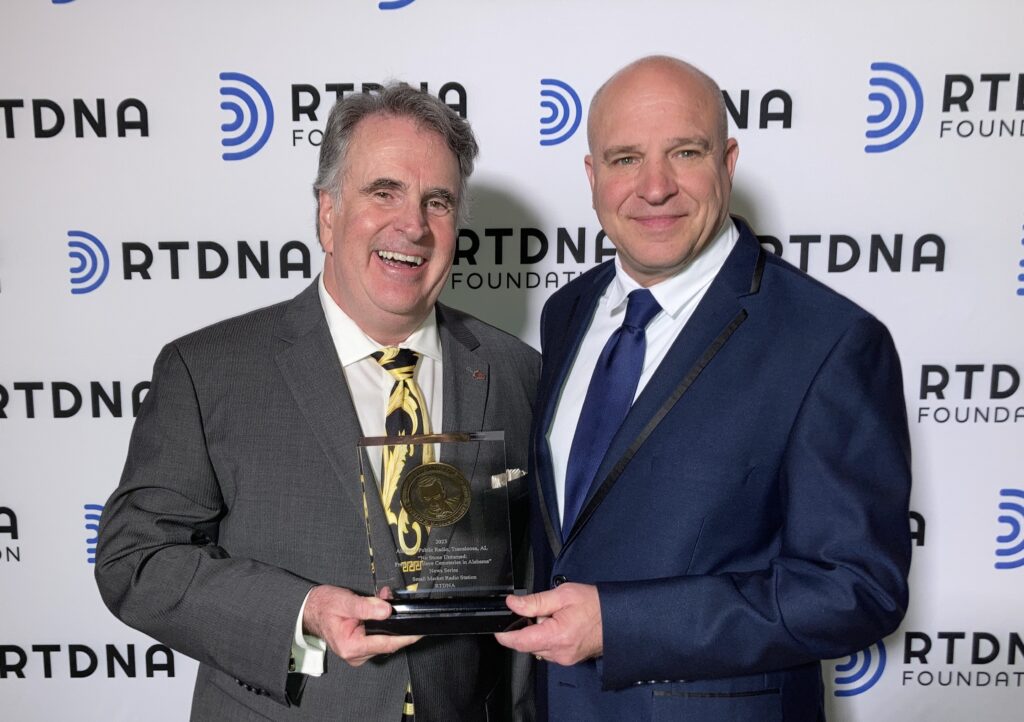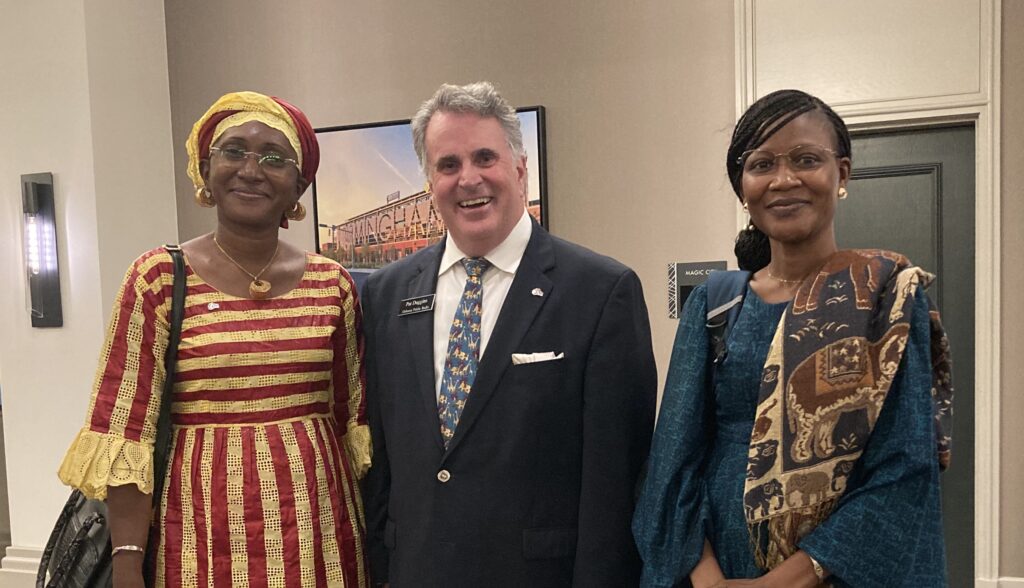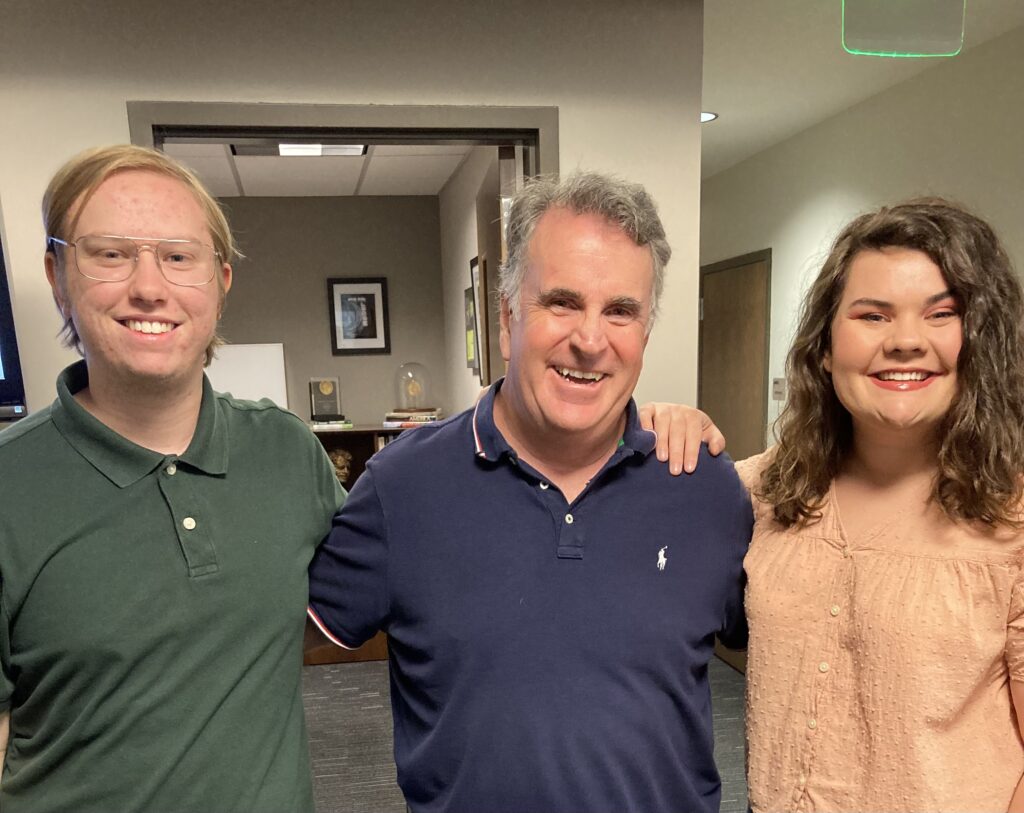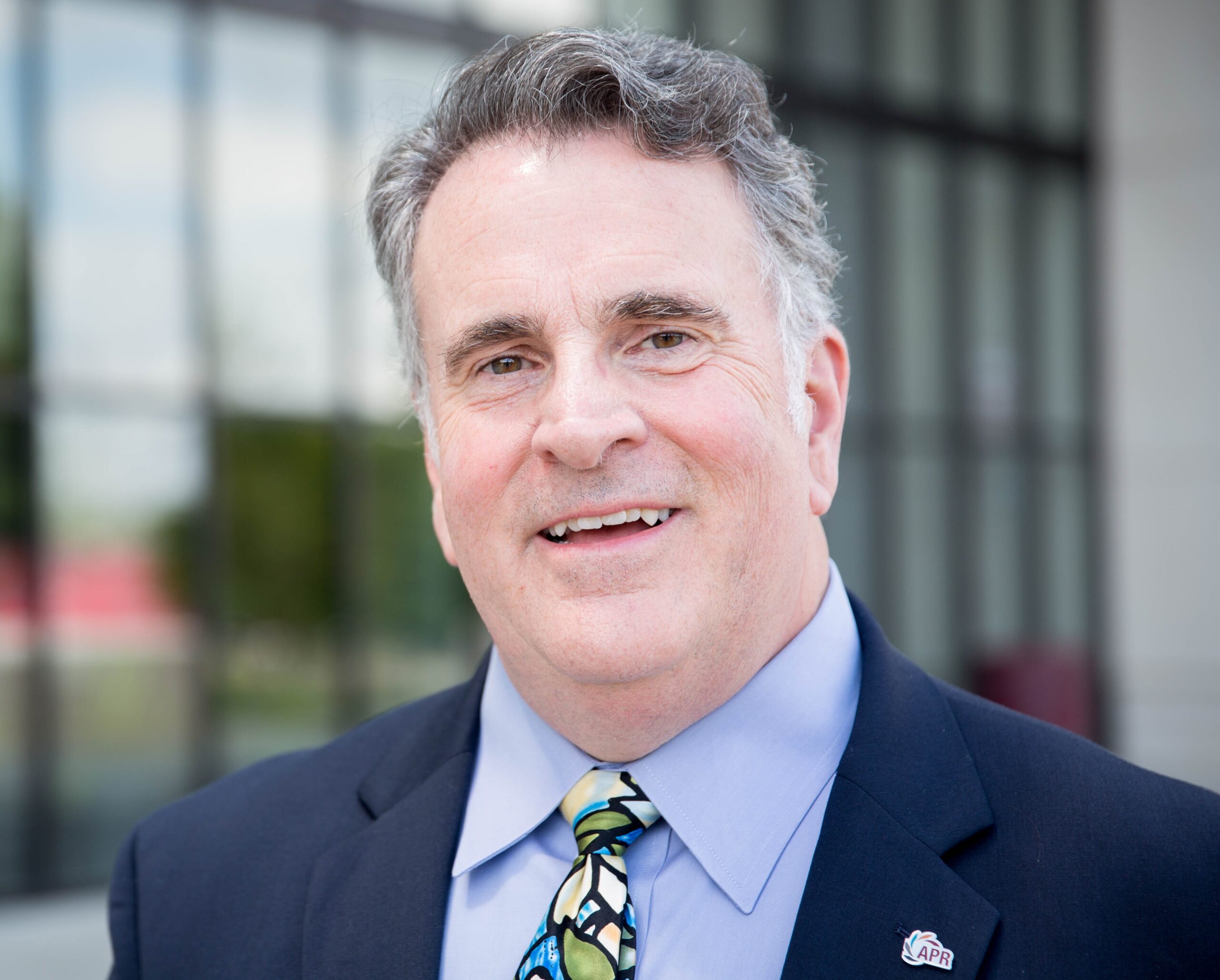Pat Duggins, Alabama Public Radio (APR) news director, has had many career moments in his time as a journalist that make for exceptional stories. He has interviewed astronauts, spoken for international audiences at talks held by the U.S. Department of State, and received over 200 awards for excellence in journalism across his career. While he has worked for a few other types of media in his career, radio is what draws him most.
“Everybody thinks it’s the voice,” Duggins said, when asked why radio journalism. “But it isn’t. To me, it’s finding the story that people say you can’t get. My reaction to that is ‘yeah, want to bet?’”
Duggins started his career after college as the weekend anchor for an ABC affiliate in Gainesville, Florida. After some time learning the ropes of the newsroom and the stories they did there, he knew that television was not for him.
“Radio builds better writers,” Duggins said. “Television relies on pictures. That’s not the kind of storytelling I ultimately wanted to do.”
Duggins then moved on to work for the NPR affiliate in Orlando, Florida. Within his first year, the space shuttle Challenger exploded. At first, no one in the building knew what to do; they were all struck by the routine becoming the unthinkable so quickly. Duggins jumped into action.
“I was the only one to grab a set of news car keys and a recorder,” Duggins recalled. “The Orlando station is maybe 40 minutes west of the Kennedy Space Center where the launch pads were. So, I got in our rickety old Toyota news car, got out on Highway 50 and followed the mushroom cloud until I got there.”
Duggins continued, “While they were getting me through security, I looked over to the left and there was a school bus from Dade City, Florida, with a bunch of 9 year olds with these hangdog expressions because they’d seen [the explosion].”
Duggins interviewed those students with their teacher’s permission, committing to tape their memories of what Challenger looked like when it exploded. The original tape is now part of an exhibit at the Museum of Broadcast Communications in Chicago, Illinois.
That day set Duggins on the course of covering space for 22 years and 103 space shuttle missions. During this time, he interviewed astronauts Neil Armstrong, John Glenn and Alan Shepard, among others. He also was part of a discussion that took place after space shuttle Columbia broke apart and burned up during reentry on February 1, 2003. He was on air with Scott Simon, NPR’s host of Weekend Edition Saturday, for three hours of live, unscripted coverage. People in East Texas called to ask what they should do as they found pieces of the shuttle on their lawns. Duggins informed everyone during that broadcast to avoid touching anything, as the chemicals used were highly corrosive and toxic.
During an interview on the 20th anniversary of the event, Simon told Duggins that not a week goes by without someone mentioning the coverage they did. That’s why Duggins pins that story as a highlight of his career with NPR.
“When you’re a reporter, you’re going to cover little stories. You’re going to cover big stories, too,” Duggins said. “But it’s a rare privilege to do something that people consider iconic.”
Duggins enjoyed these high-profile moments but recognized that as the space shuttle program was ending, he also was ready to close that chapter of his career. He soon learned of an opportunity at The University of Alabama’s newly created Digital Media Center (DMC) with Alabama Public Radio.
“Space was fun; space was glamorous,” Duggins said. “But I like what I do here better.”

Duggins has done quite a lot in his time with APR. He and his team have been honored with more than 150 awards for excellence in journalism, including APR being the first radio newsroom to receive the RFK Human Rights’ Seigenthaler Prize for Courage in Journalism. Duggins looks for opportunities to utilize his team’s skills and provide students with new experiences.
“You have to take what skills and what gifts they have and utilize those to the best of their ability, particularly when working with students,” Duggins said. “I build them up, let them know where I stand, and encourage them to try something outside the box when they can.”
Duggins and his team work on “deep dives” alongside the everyday stories. These are multi-month, in-depth investigative journalism projects about high impact topics from around the state, such as the effects of industrial chemicals, rural health and misinformation, or human trafficking. They conducted interviews with families that had been affected by these problems and with people who have been fighting them, all to better inform the public of what is going on around them.
These projects led to the U.S. Department of State inviting Duggins to speak on three separate occasions. He shared his work on these critical issues with international delegations. True to his journalistic nature, Duggins wanted to learn their stories as much as they were eager to hear him speak.

“[The delegation] made me feel completely at ease. They asked great questions. They were engaged,” Duggins said. “But I wanted to interview them, instead of them asking me questions.”
Duggins includes students in these projects and others as often as he can, knowing first-hand that practical experience can make all the difference after college.
“When I first started in 1984, I had not been taught how a newsroom works, how to interview or how to solve problems on the fly.” Duggins said. “It was like walking into a buzzsaw. So that is what we try to help our students avoid here.”
Duggins shared that roughly 60 percent of the reporting used during APR newscasts is written by students. This helps the students develop their writing skills, and teaches them practical lessons for careers in journalism, such as interviewing skills and how to build rapport with sources on different beats. These lessons all shape the students and prepare them for the real world of journalism and communication. Duggins lists student success as one of the greatest parts of working in APR.

“We have students working for media companies in New York City, Washington, D.C., Atlanta, Miami, San Francisco, Los Angeles and Denver,” Duggins said. “Seeing them go off and carve their careers and avoid the pitfalls that I ran into by learning how to write here–that’s always a win.”
Alabama Public Radio is a listener-supported service of The University of Alabama. They provide students with an opportunity to learn about public broadcasting, the practice of journalism and audio production. You can support APR by visiting their website and making a contribution to the station while becoming a member.
